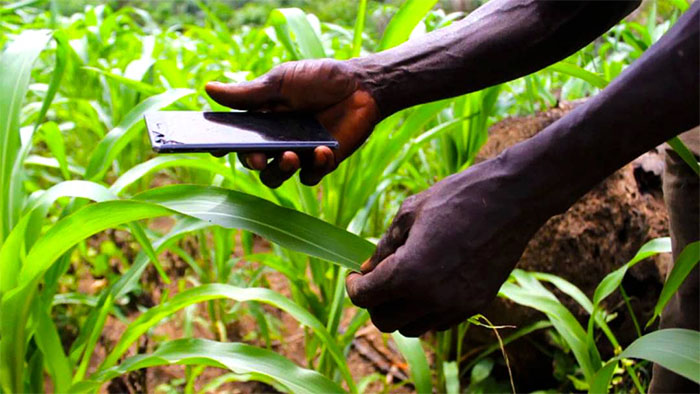Okuafo Foundation has supported many rural farmers to improve their yield using technology.
Okuafo Foundation has indicated it will be dedicating the Zayed Sustainability Prize money to the expansion of its sustainable agriculture technologies to reach more farmers.
“The prize fund of $600,000 awarded to us is being put towards expanding our capacity as an organization in order to accommodate and serve thousands of farmers across Africa, starting with Ghana,” said Mustapha Diyaol-Haqq, Co-Founder, Okuafo Foundation.
The Zayed Sustainability Prize is the United Arab Emirates(UAE’s) pioneering global award in sustainability of which Okuafo Foundation won the food category.
Speaking with DGN online in an exclusive interview, Mr Diyaol-Haqq said the Foundation is in the process of optimizing its platforms for improved accuracy and access which includes translating content into different languages in order to make it accessible to farmers in different African countries.
Mr Diyaol-Haqq noted that the Foundation’s focus will be geared towards bridging the gap between rural farmers and access to reliable information and real-time help.
“Our solutions enable rural farmers, without the need for internet connectivity gain insights into what is happening on their farms and detect pest infestations early enough, and then take sustainable steps to contain the damage before it spreads.”
“At scale, our solutions will help prevent a disaster like the fall armyworm outbreak that occurred in Ghana a few years ago, impacting the agriculture industry with a loss of approximately $64 million,” he added.
Mr Diyaol-Haqq said the Foundation will use the next three to five years, solely on research and development of low-cost technologies for sustainable agriculture as well as training field agents who can train small scale farmers to use the technology.
“This will surely impact the overall yield of small-scale farming in Ghana,” he indicated.
He further announced that the money will be used to build a near real-time map of Green House Gas (GHG) emissions from agricultural activities.
Mr Diyaol-Haqq said the map will enable the Foundation to build and gather useful data to help governments and policymakers design climate change policies that target the major players in GHG emissions.
“Our community intervention projects will also enable smallholder farmers in deprived communities to increase efficiency and productivity, to ensure families have access to nutritious food all year round,” he stated.
Again, he said the Foundations’ community intervention projects are aimed at helping rural farmers process their harvests using renewable energy-powered machines, reducing their reliance on more traditional energy sources such as diesel and kerosene.
“Scaling our initiatives will mean investments in expanding our server infrastructure, cloud computing platforms, trainers, and field officers. We could never have achieved all these without the Prize.
The Zayed Sustainability Prize is enabling us to scale our platforms, develop new ideas and partner with Governments and other organizations for greater impact,” he said.
By Jamila Akweley Okertchiri


